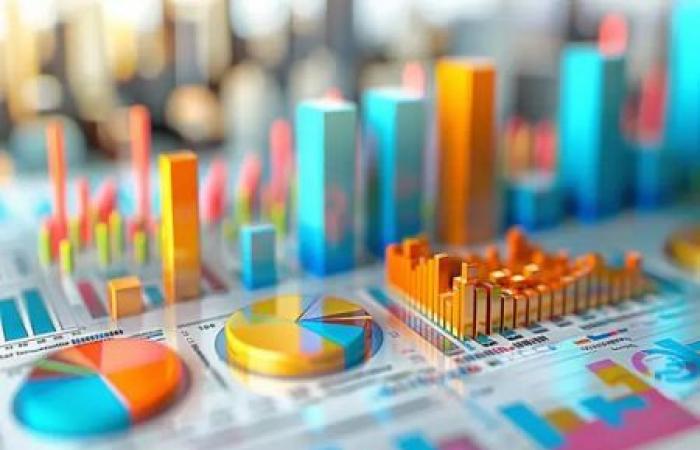(Ecofin Agency) – Africa is poised to experience an acceleration in its growth in 2025, according to several optimistic forecasts, including that of Brookings. However, the situation remains fragile, between high debts and climate vulnerability, reminding us that the road to recovery is strewn with uncertainties.
Africa’s GDP is expected to grow by 4.2% in 2025, says Brookings Institution in the new edition of its Foresight Africa report released this week. This optimistic forecast suggests an acceleration compared to the rate of 3.1% recorded in 2023 according to the ADB, thus marking a notable recovery after a period marked by inflationary pressures, difficulties in accessing financing or the prolonged effects of the Covid-19 pandemic.
The American think tank explains that this expected growth should be driven by several factors, including an increase in investment in infrastructure and the expansion of economic reforms in several countries on the continent. Africa also continues to benefit from sustained domestic demand, fueled by rapid urbanization and a growing young population. The progressive implementation of the African Continental Free Trade Area (Zlecaf) is also presented as being able to offer new economic opportunities to member states, due to the central role it will play in regional integration and the growth of intra-African trade.
On the other hand, the authors warn of several risks that could weigh on this forecast. External debt remains a major challenge, with almost half of African countries classified as distressed or at high risk of financial distress. Furthermore, extreme weather conditions, such as droughts and floods, continue to threaten agricultural production and food security in several regions.
This projection from Brookings joins that of Moody’s, which also announced growth of 4.2% for sub-Saharan Africa in 2025, compared to an estimate of 3.8% in 2024. Moody’s attributes this potential progression to an improvement in financial conditions. global economies, an increase in foreign investment and a continuation of economic reforms. However, the rating agency warned that financing costs would remain high, particularly due to external debt servicing and the potential appreciation of the US dollar, which could limit the ability of some countries to maintain their pace of growth. . The World Bank, in a note published in October 2024, anticipated an acceleration of growth to 4% in 2025 and 2026, but indicated that the economic outlook for the region remains “uncertain”. “despite the fall in global inflation and the improvement in global activity.”
Achieving these predictions for 2025 would be good news for Africa, but whether they materialize will depend on several key factors. Pursuing structural reforms, prudent public debt management and policies aimed at strengthening resilience to climate shocks will be key to ensuring sustainable growth. If these conditions are met, Africa could begin a more solid phase of economic recovery, offering new opportunities to its populations and its international economic partners.
Louis-Nino Kansoun
Read also:
10/01/2025 – Moody’s forecasts an increase in growth in sub-Saharan Africa in 2025, to 4.2%






